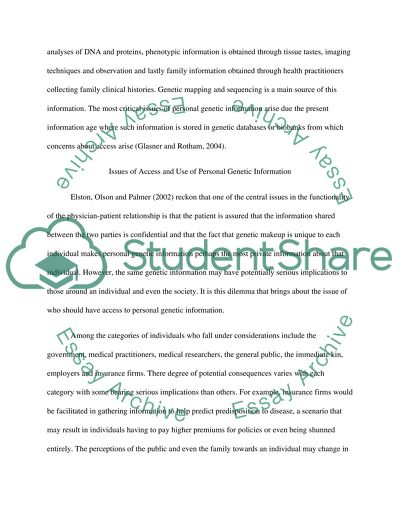Cite this document
(“Ethical and Moral Considerations in Personal Genetic Information Essay”, n.d.)
Retrieved from https://studentshare.org/sociology/1433128-ethical-and-moral-considerations-in-personal-genetic-information
Retrieved from https://studentshare.org/sociology/1433128-ethical-and-moral-considerations-in-personal-genetic-information
(Ethical and Moral Considerations in Personal Genetic Information Essay)
https://studentshare.org/sociology/1433128-ethical-and-moral-considerations-in-personal-genetic-information.
https://studentshare.org/sociology/1433128-ethical-and-moral-considerations-in-personal-genetic-information.
“Ethical and Moral Considerations in Personal Genetic Information Essay”, n.d. https://studentshare.org/sociology/1433128-ethical-and-moral-considerations-in-personal-genetic-information.


